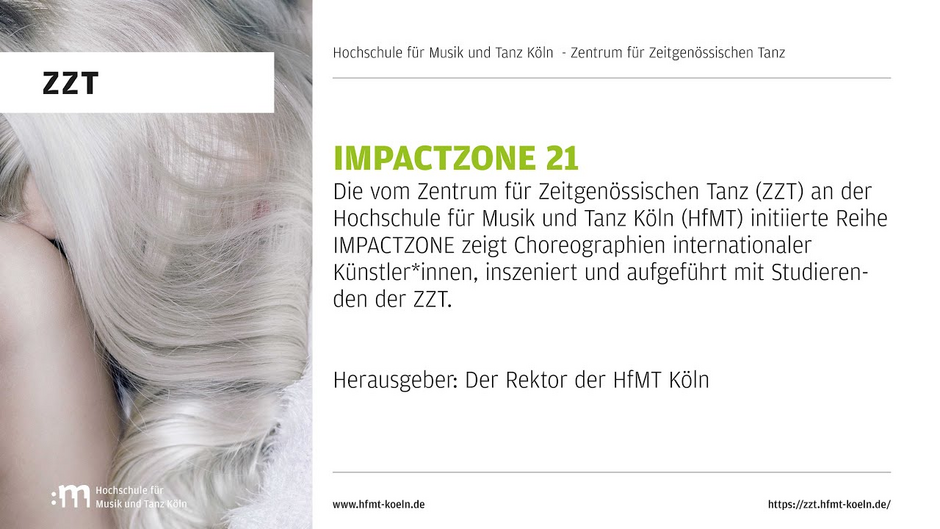Master of Arts -
Dance Studies
Aesthetic, social and political approaches to dance
How can dance be understood and researched? How do dance and culture, aesthetics, history, politics or sociology interact? How can movement be analyzed? And how does one write about and with dance? The ability to deal with bodily and inter-bodily relationships in a differentiated and analytical way is one of the central competencies in more and more fields of work. The study of dance studies enables the acquisition and development of tools and methods to address such questions in detail.
If you have any questions about the program, please contact the appropriate contact person(s).
Basic information
| Degree | Master of Arts |
|---|---|
| Period of study | 4 Semester |
| Course begin | Wintersemester |
| ECTS points | 120 Credits |
| Continuing study options | Doctorate |
Study structure and content
The master's program is designed for students with a scholarly interest in dance and a first university degree in dance, theater, musicology, or other cultural and social studies. The goal of the program is to teach complex thinking, historical expertise, and promote scholarly reflection on dance and body techniques in a broader aesthetic and social context.
In addition to studies in the methodology of historiography, choreography, and aesthetics of dance, the program teaches students to engage with the possibilities of movement analysis, practical choreographic and dramaturgical projects, and theories of the body, media, postcolonial, and institutional critique in order to understand dance in its cultural relevance. A lively culture of discussion and diversity of methods is practiced in a wide variety of formats, and a critical and self-reflexive understanding of scholarship is encouraged. Writing workshops introduce students to diverse formats of writing about and with dance, the application of which is tested in small publications, dramaturgical projects, and collaborations with the artistic field.
Module 1: Methods of Dance Science
An overview of problem areas, issues, terminologies and research perspectives of the field of study is provided here. Through intensive reading practice, students are motivated to acquire a critical scientific perspective so that they can independently research dance studies topics and reflect on their respective methods. These range from movement and discourse analytical methods to qualitative empirical and ethnographic methods to collective research designs. Complementary exercises will explore fields of work in dance studies at the interface with dance practice. Practical dance courses are included with regard to their potential to complement the dance-scientific spectrum of methods with body-reflexive analytical competencies.
Module 2: Dance Historiography
The module serves to convey historiographical procedures and a reflection on historiography that aims to critically question the canon of dance studies research in particular. In this context, global or informal practices or different social, national or cultural narratives come into view in their materiality, emergence and effectiveness.
Students are given the opportunity to develop critical and performative perspectives on dance history(s) in the practical dance elaboration of (re)constructions. In exercises at the German Dance Archive Cologne, they acquire knowledge in research and source study and work, for example, on the edition and web presentation of estates. This practical level of experience is linked to a further discussion of innovative approaches to what archives and memory cultures can be in dance and in relation to movement and body-related practices. Or with how movement and bodies report on things that find no place in the archive and how they enable a critical investigation of dance history.
Module 3: Composition, choreography and dramaturgy
In this module, compositional, choreographic and dramaturgical methods are theoretically and practically elaborated and reflected upon. "Composition", "choreography" and "dramaturgy" are thereby understood beyond the context of stage and theater as situated concepts in a broader perspective. In addition to teaching historical and contemporary concepts of choreography and composition, the module encourages transfer between academic and dance practice through cross-curricular collaborative formats in Department 7/ZZT and regular collaborations with institutions outside the university. In dialogue with analyses of a wide variety of aesthetic, dramaturgical and choreographic working methods, ideas and concepts for own and collective projects are developed and implemented. The module also includes introductions to aspects of project management, writing grant proposals, and institutional policy issues.
Module 4: Body / Arts / Media in a Global Context
Students engage in contemporary developments in diverse fields of dance and bring translocal connections into dialogue with their own research and practice. By interweaving arts and media, the module provides students with the opportunity to engage and connect a wide range of perspectives and interests, including music, visual arts, theater, performance, and artistic expressions in everyday life such as forms of protest - related to a variety of global contexts. Central to this is the theoretical engagement from a decolonial stance, for example to consider the politics of concrete aesthetics or curatorial strategies. Critical theories ('gender', 'race', ethnicity, dis/ability, sexuality) are discussed in this practically oriented field of study with reference to diverse cultural and political settings. Opportunities and problems of comparative research strategies are discussed. Students are encouraged to conduct their own artistic and scholarly research projects that experiment with the use of various media, including web-based formats, for example, to contribute to an expansion of the public reach of dance as a field of aesthetic, cultural, and political inquiry.
Module 5: Research module
This module offers students the opportunity to independently research a freely chosen dance-scientific issue. The knowledge and skills acquired during the course of study are to be applied and tested in a practical manner. The module will conclude with a format in which students publicly communicate their research process as well as their findings in a presentation. In this module, students also learn to write a research exposé for their MA thesis and to develop and discuss a procedure for it.
Module 6: Examination module
In this module, students write the master's thesis and take an oral examination on it.
Application and aptitude test
Applications are submitted online via the muvac platform. All information on the procedure can be found on our application page.
Admission requirements
- First university degree (e.g. BA degree in subjects such as dance, theater or music studies, cultural or social sciences, or in other fields that have provided an initial exposure to the body, dance, choreography, and the social and political interaction of moving bodies in a range of spatial contexts). In individual cases, such as the presence of an artistically oriented BA degree, admission may be conditional on attendance of additional Dance Studies courses in the BA Dance program.
- Very good German and English language skills. Courses are taught primarily in German, but English-language literature is included.
Application documents
The following documents are required for the application:
- Letter of motivation
- Curriculum vitae
- Proof of completion of a relevant university degree (certified copy)
- Submission of an academic work sample on a topic or issue from the broader thematic field of dance, performance, body practices or (social, political, aesthetic) movement research - e.g. BA thesis or excerpts thereof, term papers, essays). Alternatively, written reflections of own artistic works (at least 10 pages each) may be submitted. The submitted text should give insight into the analytical and contextualizing skills of the applicant.
- Language certificate, if applicable
Application deadline
Application deadline is June 1st of each year for a study start in the winter semester. If you have any questions, please do not hesitate to contact Prof. Dr. Yvonne Hardt.
Course of studies and examination regulations
You can find the course of study and the examination regulations under Documents & Downloads.
Prospects after graduation
The program qualifies students for further careers as well as doctoral studies in the field of dance and cultural studies or in all scientific fields in which a critical methodological approach is a prerequisite for a decided examination of bodies, movement, and processes of spatial orders. It also qualifies students for work in theaters and other cultural institutions in areas such as curation, cultural management, dramaturgy, production and communication. Further obvious fields of activity can be found in cultural policy, in archives and publishing houses, e.g. as an editor or critic). The systematic promotion of experience with transfer processes related to forms of knowledge and methods in dance also enables graduates to transfer the skills and knowledge they have gained in the program to other professional contexts.
Current events
Marktebene Köln
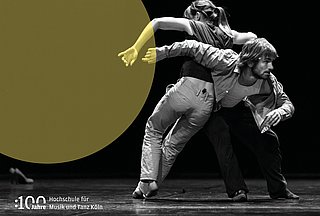
Konzertsaal Köln
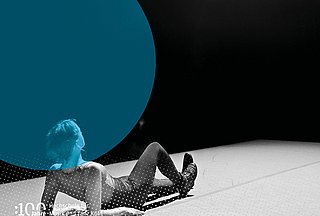
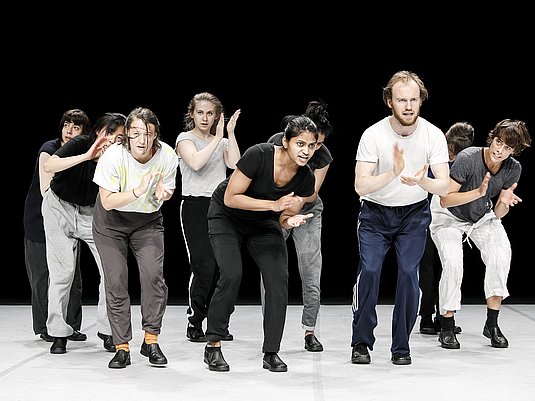
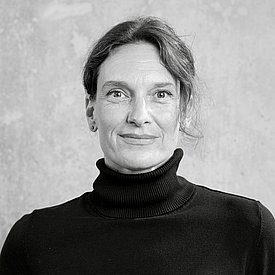
Dean Department 7/ZZT
|
Yvonne.Hardt@hfmt-koeln.de |
|
| Telephone |
+49 (0)221 / 28380 - 388 |
| Address |
Hochschule für Musik und Tanz Köln Turmstraße 3-5 50733 Köln |



